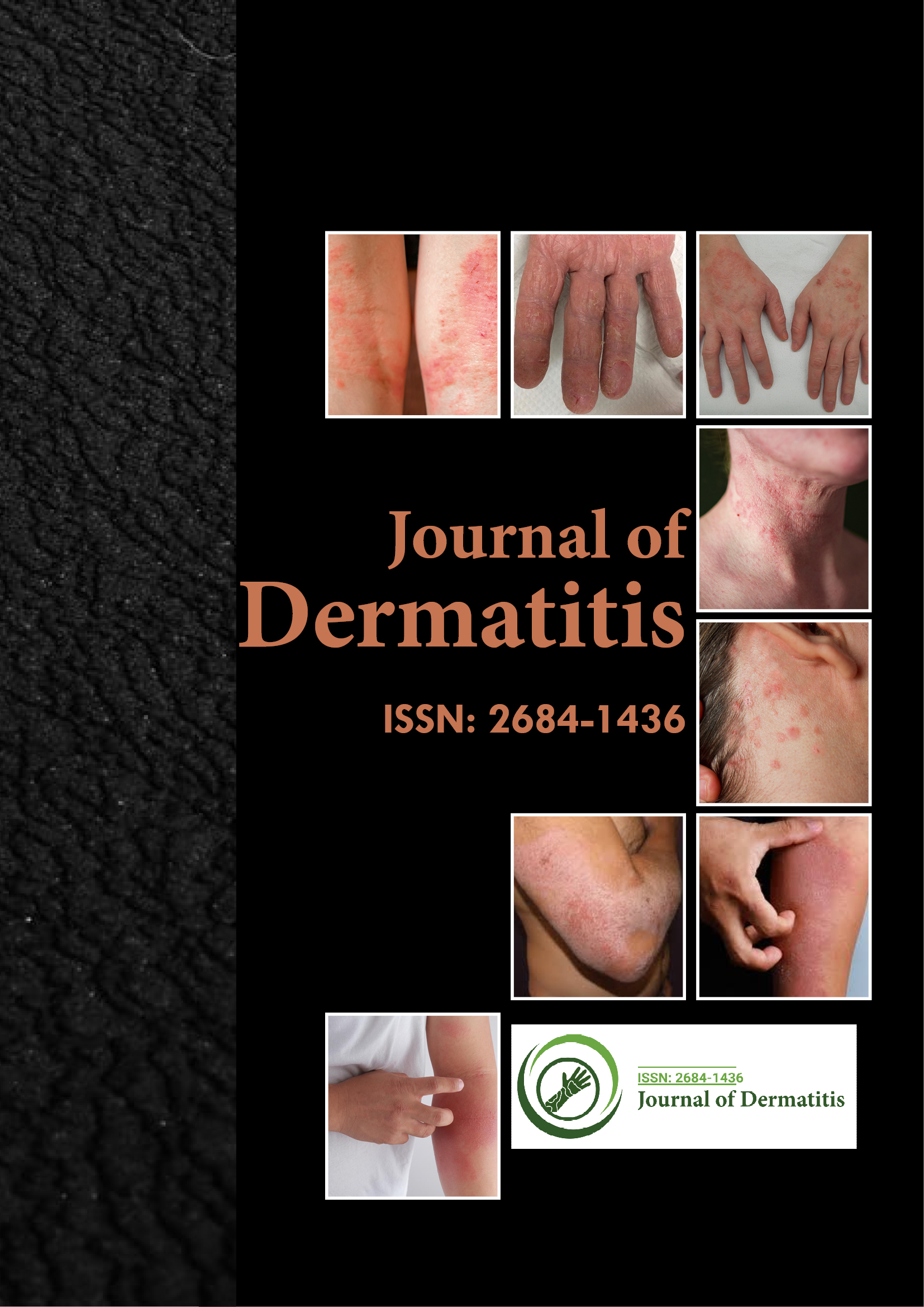Indexed In
- RefSeek
- Hamdard University
- EBSCO A-Z
- Euro Pub
- Google Scholar
Useful Links
Share This Page
Journal Flyer

Open Access Journals
- Agri and Aquaculture
- Biochemistry
- Bioinformatics & Systems Biology
- Business & Management
- Chemistry
- Clinical Sciences
- Engineering
- Food & Nutrition
- General Science
- Genetics & Molecular Biology
- Immunology & Microbiology
- Medical Sciences
- Neuroscience & Psychology
- Nursing & Health Care
- Pharmaceutical Sciences
Opinion Article - (2023) Volume 8, Issue 2
Natural Cure for Eczema: Herbal Treatments for Medicating Skin
Xian Xua*Received: 01-Mar-2023, Manuscript No. JOD-23-20043; Editor assigned: 03-Mar-2023, Pre QC No. JOD-23-20043 (PQ); Reviewed: 20-Mar-2023, QC No. JOD-23-20043; Revised: 27-Mar-2023, Manuscript No. JOD-23-20043 (R); Published: 03-Apr-2023, DOI: DOI: 10.35248/2684-1436.23.8.184
Description
Millions of people all around the world suffer with eczema, commonly known as atopic dermatitis. It is characterised by skin that is red, itchy, and inflamed, which can be painful as well as ugly. Despite the fact that there is no known treatment for eczema, there is a variety of non-medical options that can help treat the condition's symptoms and speed up recovery, including the use of herbal medicines.
Types of herbal medicine
Herbal medicine, also known as botanical medicine, involves the use of plant-based remedies to treat various health conditions. Herbs have been used for centuries to treat a wide range of ailments, including skin conditions like eczema. Here are some of the most popular herbal remedies for eczema:
Aloe vera: Aloe vera is a succulent plant that is well known for its healing properties. It contains compounds that can help reduce inflammation and soothe irritated skin. Aloe vera gel can be applied directly to the affected area to help calm eczema flare-ups.
Chamomile: Chamomile is a popular herb that is often used to treat skin conditions like eczema. It contains anti-inflammatory compounds that can help reduce redness and inflammation. Chamomile tea can be used topically as a compress, or it can be ingested to promote relaxation and improve sleep quality, which can in turn improve eczema symptoms.
Calendula: Calendula, also known as marigold, is a flowering herb that has been used for centuries to treat various skin conditions. It contains anti-inflammatory compounds that can help soothe irritated skin and reduce redness. Calendula cream or ointment can be applied topically to the affected area.
Licorice: Licorice root contains compounds that can help reduce inflammation and itching, making it an effective remedy for eczema. Licorice root can be taken internally in the form of tea, or applied topically as a cream or ointment.
Lavender: Lavender is a popular herb that is often used for its calming and relaxing properties. It contains compounds that can help reduce inflammation and promote healing. Lavender oil can be applied topically to the affected area, or it can be added to a warm bath to promote relaxation and soothe irritated skin.
Evening primrose oil: Evening primrose oil is natural oil that is high in Gamma Linolenic Acid (GLA), an essential fatty acid that is known to help reduce inflammation. It can be taken internally in the form of supplements, or applied topically as a cream or ointment.
While herbal medicine can be effective in managing eczema symptoms, it is important to consult with a healthcare professional before using any herbal remedies, particularly if taking any medications or have any underlying health conditions. Additionally, herbal remedies should not be used as a replacement for prescribed medications without consulting with a healthcare professional first.
In conclusion, eczema can be a frustrating and uncomfortable condition, but there are natural remedies, including herbal medicine, that can help manage symptoms and promote healing. Aloe vera, chamomile, calendula, licorice, lavender, and evening primrose oil are all popular herbal remedies for eczema that can help soothe irritated skin and reduce inflammation. However, it is important to use caution when using herbal remedies and to consult with a healthcare professional before using any new treatments.
Citation: Xua X (2023) Natural Cure for Eczema: Herbal Treatments for Medicating Skin. J Dermatitis.8:184.
Copyright: © 2023 Xian X . T his is an open-access article distributed under the terms of the Creative Commons Attribution License, which permits unrestricted use, distribution, and reproduction in any medium, provided the original author and source are credited.

